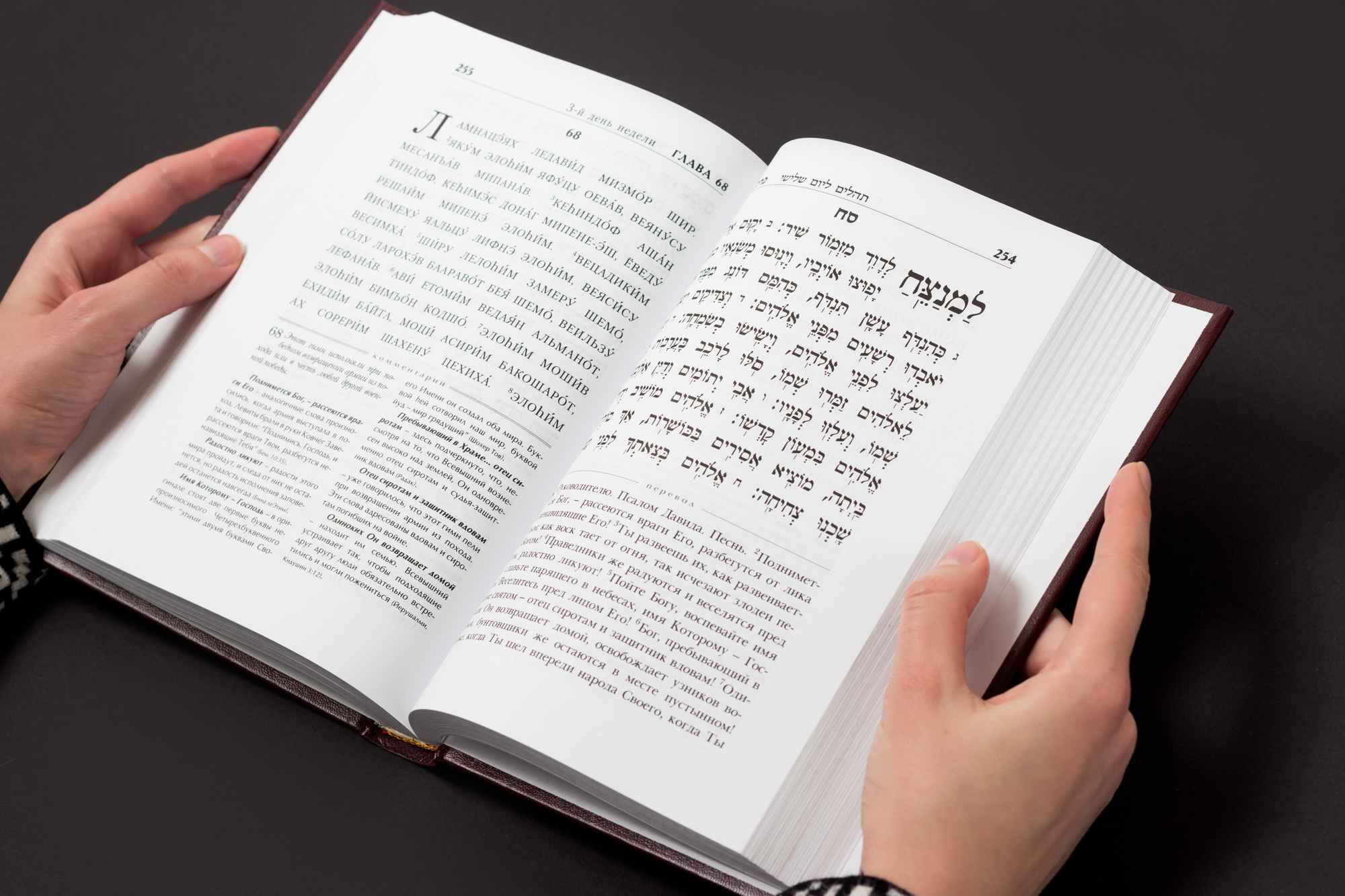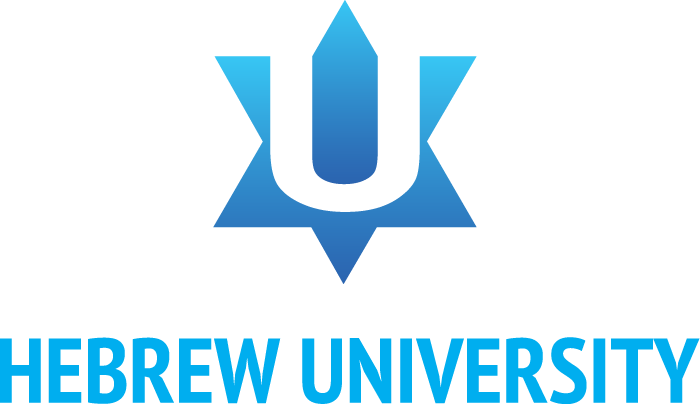
Earn yourself a degree in Bachelor of Arts in Judaic studies and become knowledgeable in culture, history, and literature of Jews. The program equips a learner with an understanding of the lived experiences of the Jewish community through history. The program has courses touching on ancient languages, philosophies, politics, and the law. The learner will also understand comparisons between Jews and other religious institutions and traditions. As the learner looks at the facets of Jewish experiences, you benefit the opportunity to build your knowledge of Hebrew. Through the course, you will interact with several various members of Jewish sects as well as those who have moved to become non-religious.
At the end of the program, students will demonstrate an understanding of Jewish history and culture. The student will apply philosophical, historical, and religious theories to interpret organizational situations efficiently.
The program requires students to complete 120 credits to be eligible for graduation. The course is spread through a four-year program.
In the online Judaic studies program, you will learn:
- Jews and Judaism
- Sociology, linguistic, historical, and philosophic perspectives
- About Jews and Israel from the beginnings of ancient Israel through to modern Israel
- Students without previous knowledge of Hebrew will be needed to complete 138 credits, including 120 required core courses and 18 electives.
The university has one mission:
To help students excel. The benefits of an online Bachelor of Arts in Judaic studies include:
- Convenience
- Affordability
- Flexibility
- Student support
- Expert instruction
Career & Outcomes

The Online Bachelor of Art in Judaic studies prepares you to pursue a variety of religious careers. After your degree, you will be well-positioned for success in any organization that demands critical thinking skills, research, and communication. You will be poised to undertake humanitarian projects, work with community organizations, Rabbinic studies, and have enriched learning opportunities. According to the U.S. Bureau of Labor Statistics, the employment demand for graduates with a Bachelor of Art in Judaic studies is set to grow by 5% between 2018 and 2024. A degree in Judaic studies will prepare you for programs coordinator, publications editor, rabbi, and resource director in some non-profit organizations.
Program Outline:
General Education Courses Requirements
3 Credits
Course Description:
This course will familiarize the student with the basic philosophical questions and the different attempts of the great philosophers to offer answers to these questions. The student will learn a philosophical point of view to approach these questions. It will present an overview of the origins of western philosophy. This course serves to meet the Gordon Rule requirements.
3 Credits
Course Description:
This course will introduce the roots of Western Civilization from the Greeks, Phoenicians, and Romans. The student will learn a philosophical point of view to approach these questions. It will present an overview of the origins of western philosophy. This is a humanities distribution course. This course serves to meet the Gordon Rule requirements.
3 Credits
Course Description:
This course is an introduction to college-level writing, offering freshmen students training in the techniques and skills required to write unified, coherent paragraphs and essays and in the use of the library and electronic formats as a source of reference. Students receive instruction on the principles, practice, and skills of argumentation and critical reading and thinking. This course serves to meet the US Higher Educational Institution Gordon Rule writing requirements.
Learning Outcome:
Upon completion of this course, students will be able to:
- Expand knowledge of sentence construction and overall essay organization.
- Write a documented research paper using the library and electronic formats.
- Proofread and revise your writing.
- Locate information in the library using various formats and write correct bibliographical references.
- Identify and correct Run-Ons and Fragments within a passage.
- Understand the writing process and follow the four steps in writing.
- Identify subjects and verbs.
- Make subjects and verbs agree.
- Develop fluency in writing by increasing the frequency of writing.
- Identify and correct spelling errors.
- Correct use of capital letters and punctuation marks in sentences and paragraphs.
3 Credits
Course Description:
Students will apply and refine their writing skills in various types of writing such as persuasive writing, argumentative writing, comparison, and contrast writing, research papers, expository writing, writing about literature, and creative writing. This course serves to meet the US Higher Educational Institution Gordon Rule writing requirements. Prerequisite: ENG – 1101
Learning Outcome:
- Upon completion of this course, students will be able to:
- Produce essays that demonstrate their skills in the major rhetorical patterns such as narration, description, process, definition, argumentation, persuasion, and comparison and contrast.
- Demonstrate knowledge of the fundamentals of research and proper documentation.
- Be able to reflect on what contributed to their writing process and evaluate their work.
3 Credits
Course Description:
This course covers developments in social and cultural changes through modern times. Topics covered will examine the sociological perspectives, sociological research, sexuality, cultural debates, the process of socialization, groups and organizations, crime and deviance, stratification, inequality and discrimination that affects ageism and gender, race and ethnicity, issues involving the economy, different forms of government, marriage, religion, health, and environment safety, urbanization, and social movements.
3 Credits
Course Description:
The nature of human behavior as a dynamic developmental phenomenon. While the emphasis is psychological, an understanding of the physical aspects of development and their social implications is included. Observation and written analysis of principles of learning involved in human development is required. This course meets teacher certification requirements in the area of psychological foundations. At the end of the course, the student will be familiar with the principles that surround the field of psychology and will have an understanding of the basic concepts and terminology that are emphasized in the field as it relates to human development.
3 Credits
Course Description:
The following topics are included in this course; functions; domain and range of a function; graphs of functions and relations; algebra of functions; composite and inverse functions; linear, quadratic, and rational functions; absolute value and radical functions and equations; exponential and logarithmic properties, functions and equations; systems of equations and inequalities; mathematical modeling; and applications involving the able listed topics.
3 Credits
Course Description:
This course offers a chronological survey of guiding ideas and trends within western culture, as reflected in the philosophy, literature, and fine arts of the ancient, medieval, and modern times. The instructor will select a succession of periods that can be covered meaningfully within the term. The student will acquire knowledge of the cultural achievements falling within selected periods in the development of western civilization, along with an understanding of how these achievements contribute to making the west’s present cultural inheritance.
3 Credits
Course Description:
This course introduces ideas and examples of art appreciation, music, philosophy, drama, literature, and dance with an emphasis on critical appreciation of the influences that shape each genre. The course retains the focus on the arts as an expression of cultural and personal values.
3 Credits
Course Description:
This course surveys Western civilizations from Greco-Roman times to the present. It reviews the basic chronology of Western civilizations while focusing on the major events and problems of Western history, including political, social, cultural, and economic developments. The course also emphasizes geography as it relates to Western history and some interpretive issues regarding major events and problems in Western civilizations.
3 Credits
Course Description:
The nature of human behavior as a dynamic developmental phenomenon. While the emphasis is psychological, an understanding of the physical aspects of development and their social implications is included. Observation and written analysis of principles of learning involved in human development is required. This course meets teacher certification requirements in the area of psychological foundations. This course provides an overview of the various areas included in the field of human psychology.
3 Credits
Course Description:
This course covers developments in political, social, and cultural changes through modern times. Topics covered will examine a diverse perspective, sociological research, sexuality, cultural debates, the process of socialization, groups and organizations, crime and deviance, stratification, inequality and discrimination that affects ageism and gender, race and ethnicity, issues involving the economy, different forms of government, marriage, religion, health, and environment safety, urbanization, and social movements.
3 Credits
Course Description:
This course covers the developments of the Zionist movement to the formation of the State of Israel.
Electives Courses
3 Credits
Course Description:
Judaism is the ethnic religion of the Jewish people, comprising the collective religious, cultural, and legal tradition and civilization of the Jewish people.
3 Credits
Course Description:
This course discusses Judaism and its traditions. It covers the relation between God and the Torah.
3 Credits
Course Description:
Biographical studies of major Jewish scholars and religious personalities from the late Middle Ages to the twentieth century, their literary activities, and their impact on Jewish society and intellectual life. Personalities to be studied include Rabbi Joseph Karo, the Gaon of Vilna, and Rabbi Dr. David Zvi Hoffman.
3 Credits
Course Description:
This course offers advanced studies and research on Jewish scholars and religious personalities from the destruction of the Second Temple to the Middle Ages, their literary activities, and their impact on Jewish society and intellectual life.
3 Credits
Course Description:
The course covers the rise of Judaism. It is the ethnic religion of the Jewish people, comprising the collective religious, cultural, and legal tradition and civilization of the Jewish people. Judaism is considered by religious Jews to be the expression of the covenant that God established with the Children of Israel.
3 Credits
Course Description:
The course covers the rise of Judaism Part I. It is the ethnic religion of the Jewish people, comprising the collective religious, cultural, and legal tradition and civilization of the Jewish people. Judaism is considered by religious Jews to be the expression of the covenant that God established with the Children of Israel.
3 Credits
Course Description:
The course covers the rise of Judaism Part II. It is the ethnic religion of the Jewish people, comprising the collective religious, cultural, and legal tradition and civilization of the Jewish people. Judaism is considered by religious Jews to be the expression of the covenant that God established with the Children of Israel.
3 Credits
Course Description:
Survey and analysis of select passages from the Talmud, the major repository of Jewish legal and ethical teaching. Readings reflect major concerns of Judaism in antiquity, such as the obligation to study the Torah, to care for the needy, and to promote justice.
3 Credits
Course Description:
This course is covered the fundamentals survey and analysis of select passages from the Talmud, the major repository of Jewish legal and ethical teaching. Readings reflect major concerns of Judaism in antiquity, such as the obligation to study the Torah, to care for the needy, and to promote justice.
3 Credits
Course Description:
This course is covered the advanced survey and analysis of select passages from the Talmud, the major repository of Jewish legal and ethical teaching. Readings reflect major concerns of Judaism in antiquity, such as the obligation to study the Torah, to care for the needy, and to promote justice.
3 Credits
Course Description:
Survey and analysis of select passages from the Midrash, the major repository of Jewish thought, and biblical commentary of the Talmudic Rabbis. Men and women. Jew and non-Jew. Good and evil. Reward and punishment.
3 Credits
Course Description:
The role of the Jewish woman in religion and history. The status of a woman in Jewish Law. Different roles of the Jewish woman in the Sephardic and Ashkenazic communities. Jewish responses to the feminist movement.
3 Credits
Course Description:
Study of the origins and authority of ritual customs (minhagim) in Jewish tradition, relationship to historical conditions, and place in the Jewish legal system (Halakhah). Analysis of the typology of customs based on internal religious dynamics as well as external, environmental influences. An analysis of the nature of customs as an expression of communal and cultural diversity within Jewish life.
3 Credits
Course Description:
This advanced course studies of the origins and authority of ritual customs (?minhagim?) in Jewish tradition, relationship to historical conditions, and place in the Jewish legal system (?Halakhah?). Analysis of the typology of customs based on internal religious dynamics as well as external, environmental influences. An analysis of the nature of customs as an expression of communal and cultural diversity within Jewish life.
3 Credits
Course Description:
This research course studies of the origins and authority of ritual customs (?minhagim?) in Jewish tradition, relationship to historical conditions, and place in the Jewish legal system (?Halakhah?). Analysis of the typology of customs based on internal religious dynamics as well as external, environmental influences. An analysis of the nature of customs as an expression of communal and cultural diversity within Jewish life.
3 Credits
Course Description:
This course covers the Kabbalah. This is a form of Jewish mysticism that emerged during the medieval period. It is at the root of various messianic ideologies and movements which became highly influential during the early modern and modern eras. Focuses on the central doctrines of Kabbalah, the geographical and social contexts in which these mystical ideas and messianic trends evolved, and the internal factors that led to their popularization.
3 Credits
Course Description:
This course is covered the Apocrypha and the work, usually written, of unknown authorship or doubtful origin. Biblical Apocrypha is a set of texts included in the Latin Vulgate and Septuagint but not in the Hebrew Bible. … Other non-canonical apocryphal texts are generally called pseudepigrapha, a term that means “false attribution.”
3 Credits
Course Description:
The Apocrypha cover this advanced course. This research and advanced covers the Latin Vulgate and Septuagint. Other non-canonical apocryphal texts are generally called pseudepigrapha, a term that means “false attribution.”
3 Credits
Course Description:
This course is to develop tools and strategies on Jewish life, write the textbooks others learn from, and graduate leaders who become a new creative force to support the religion.
3 Credits
Course Description:
This course Part II is to develop tools and strategies on Jewish life, write the textbooks others learn from, and graduate leaders who become a new creative force to support the religion.
3 Credits
Course Description:
This course Part III is to develop tools and strategies on Jewish life, write the textbooks others learn from, and graduate leaders who become a new creative force to support the religion.
Total Credits Hours
120
Disclaimer: Hebrew University and University Central of Ashdod (UCEA) College of Arts/Science reserves the right, because of changing conditions, to make modifications of any nature in academic programs and requirements of the university and its constituent colleges without advance notice. Students are advised to consult regularly with an academic advisor concerning their programs of study.


